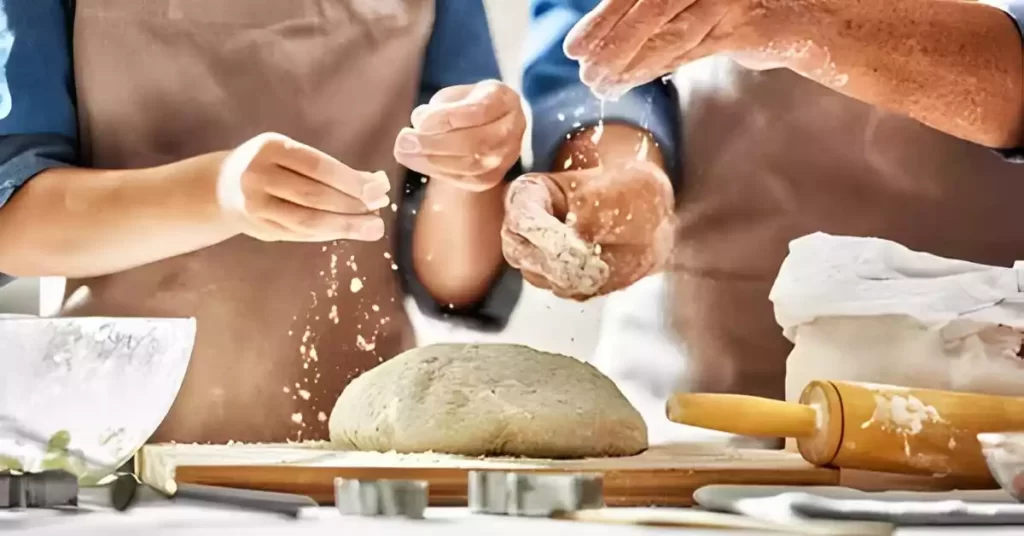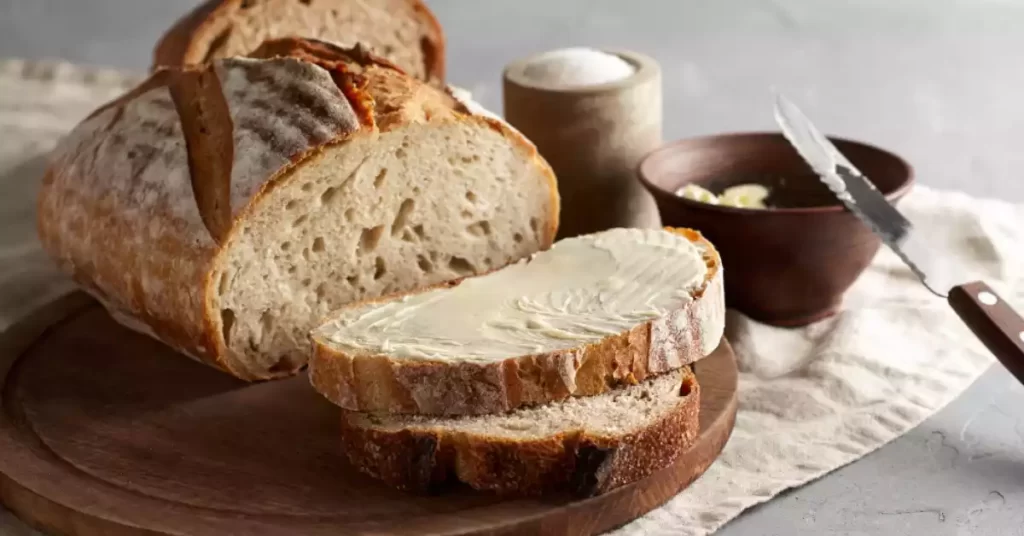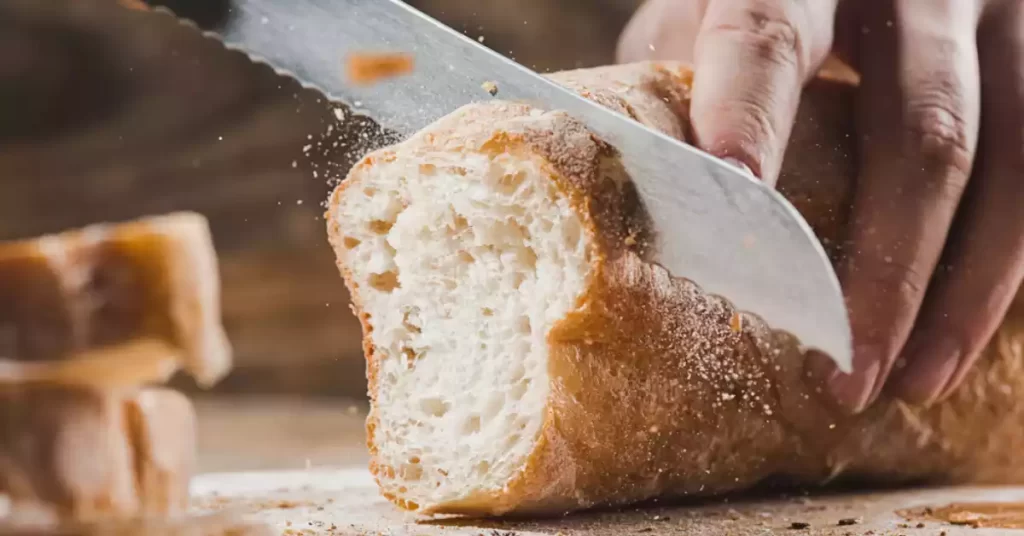The process of baking bread at home has a certain allure. The fragrant aroma, the act of creating something from scratch, and ultimately the taste of the final product, have led many to take up this culinary endeavor. However, it’s not uncommon for first-time or even experienced bakers to notice a distinct difference in taste between their home-baked bread and store-bought varieties.
Baking bread at home allows for control over every ingredient that goes into your loaf, resulting in a unique flavor profile. However, despite following recipes to the letter, sometimes the bread tastes distinctly different – sometimes even weird.
The complex chemistry of bread baking, the ingredients used, and the environment can all play a significant role in the taste of your homemade bread. The taste variation between homemade and store-bought bread can be quite vast due to these factors.
The Basic Ingredients of Bread
Introduction to Bread Ingredients
Bread, at its most basic, is made from four ingredients – flour, water, yeast, and salt. However, each of these seemingly simple components contributes to the taste of the bread in its unique way.
Role of Ingredients in Taste Variation
The type of flour you use can greatly affect the flavor of your bread. Whole grain flour, for example, will lend a robust and hearty taste compared to refined white flour. The water quality and its mineral content can subtly influence your bread’s flavor.
Yeast, a living organism, is responsible for the fermentation process, producing alcohol and carbon dioxide, imparting a unique flavor. Lastly, salt enhances flavor and controls yeast fermentation.

Homemade Bread vs Store-Bought
What Makes Homemade Bread Taste Unique?
Homemade bread’s taste is distinct due to the freshness of the ingredients and the absence of preservatives. The bread’s crust has a deep, caramelized flavor resulting from the Maillard reaction (browning) during baking, which differs greatly from many store-bought breads that lack this depth of flavor.
How Store-Bought Bread Achieves Consistent Flavor
Store-bought bread manufacturers often use additional ingredients and enhancers to achieve a consistent flavor and prolong shelf life. The dough is mixed and proofed in highly controlled environments and baked in commercial ovens that can handle hundreds of loaves at once, leading to a uniform taste.
The Chemistry of Bread Baking
Yeast Fermentation and Its Impact
Yeast fermentation is the soul of bread baking. The yeast ferments the sugars in the dough, producing alcohol and carbon dioxide. This fermentation creates organic acids and contributes to the aromatic flavors we associate with fresh bread.
Bread Maillard Reaction
The Maillard reaction that occurs during baking plays a huge role in the final flavor profile of the bread. This reaction between amino acids and sugars at high temperatures gives bread its golden brown crust and a deep, complex flavor.

Common Reasons Why Homemade Bread Tastes Weird
Improper Use of Ingredients
A common reason for homemade bread tasting different or off is the improper use of ingredients. This could be due to the wrong type or amount of flour, yeast, or other ingredients.
Missteps in the Baking Process
Temperature control is critical during both proofing and baking. If the dough is proofed or baked at incorrect temperatures, it can lead to a weird taste.
The Influence of Kitchen Environment
Factors such as the humidity and temperature of your kitchen, and even the type of oven you use, can also influence the taste of your bread.
Making Your Homemade Bread Taste Better
Precision in Measuring Ingredients
Accuracy in measuring ingredients is paramount to baking delicious bread. It’s advisable to use a kitchen scale to ensure precision.
Essential Techniques for Proper Baking
Learning the essential techniques of bread baking, such as kneading, proofing, and baking, can significantly improve the taste of your homemade bread.
Kitchen Environment
Regulating your kitchen environment, especially temperature and humidity, can have a positive impact on your bread’s taste.

Bread Baking Challenges
The Rewards and Pitfalls of Baking Bread at Home
While the act of baking bread can be therapeutic, it can also be challenging, especially when it doesn’t taste as expected. However, understanding the potential pitfalls and knowing how to address them can make the process rewarding.
How to Improve Your Bread Baking Skills
Practice, patience, and a willingness to learn are key in improving your bread baking skills. Experimenting with different ingredients and techniques can also help enhance the flavor profile of your homemade bread.
Frequently Asked Questions
Why Does My Bread Taste Yeasty?
If your bread tastes overly yeasty, it could be due to using too much yeast or letting the dough over-ferment.
Why Is My Homemade Bread So Dense?
Bread can turn out dense due to insufficient kneading, not allowing the dough to proof long enough, or baking at the wrong temperature.
Why Does My Bread Have a Sour Taste?
A sour taste can result from over-fermentation or the use of a sourdough starter, which contains bacteria that produces lactic acid, giving it a tangy flavor.
Conclusion
The taste of homemade bread, with its unique characteristics, is a joy to savor. The chemistry of baking, choice of ingredients, and kitchen environment all play a significant role in shaping its flavor.
Even if it sometimes tastes a bit off, the knowledge that you’ve created a loaf of bread from scratch using simple ingredients is a gratifying experience. With each baking session, you learn, adapt, and improve, leading to better tasting bread each time.
In the grand scheme of things, baking bread at home is about more than just replicating the taste of store-bought bread. It’s about embracing the nuances and creating something uniquely yours. So, keep baking, keep learning, and above all, enjoy the process.
